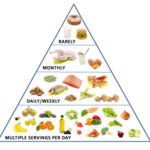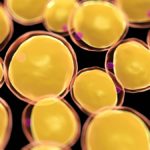By David Blyweiss, M.D., Advanced Natural Wellness
I always know when Spring has arrived by the steady stream of patients coming into my office complaining of itchy eyes, runny noses, and serial sneezes.
If you also suffer from hay fever, blame an overactive immune system.
Your immune system mistakenly interprets airborne particles of pollen, mold, or dust as dangerous invaders. The body overreacts and releases a chemical called histamine into the bloodstream. And it’s this histamine release that causes all of your symptoms.
Now, over-the-counter and prescription drugs can bring temporary relief. But these medications can also cause depression, drowsiness, vomiting, nausea, gastrointestinal pain, and diarrhea. They also inhibit the production of serotonin. And that may dry out the nasal passages.
Fortunately, the natural world offers relief.
One of my favorite ways to avoid seasonal allergies comes from the produce section at the grocery store. Start by stocking up on colorful fruits and veggies like apples, broccoli, citrus fruit, grapes, red onions, tomatoes and green leafy vegetables. These foods are packed with allergy-fighting quercetin that blocks histamine release.1 And you may want to drink lots of green and black tea. Both are rich in immune-boosting bioflavonoids.
Another tip is to try and avoid exposure whenever you can.
Keep the windows closed during high pollen days and minimize most common indoor allergens by vacuuming and dusting often. But avoid cleaners and air fresheners that contain artificial fragrances. These airborne chemicals can work their way into your body and trigger an allergic response. For cleaner inside air, change your furnace’s air filter once a month. And consider buying a HEPA air filter for the bedroom. This purifier is designed to filter out even the smallest particles.
Are You Suffering From...
- Love handles and a pot belly
- Romance that isn't what it used to
- Forgetfulness and inattention
- Low (or no) strength and endurance
- A sex drive that's shifted into neutral...or worse
If so...you may have Mature Male Burnout. Click here to discover more about this unique condition and what you can do about it.
But even if you are fanatical about avoiding allergens, it’s likely you won’t be able to sidestep them entirely. For those times when allergies get you down, try one of my top 5 allergy remedies:
Bromelain: This enzyme from pineapples is known for its anti-inflammatory effects as well as its ability to soothe mucous membranes. Soothing these membranes is the front line of defense during allergy season. Dose: 1,000 mg daily.
Butterbur: Studies show that butterbur contains a substance called petasine that is just as good as prescription antihistamines—but with no drowsiness.2 Dose: 50 to 75 mg of a standardized supplement twice a day.
Nettle: Also known as stinging nettle, this herb contains anti-allergenic and antihistamine compounds. These compounds enhance the body’s resistance to pollens and molds.3 It’s the first thing I reach for when I get a sneezing attack because I can count on this herb to make it stop, often within just 10 minutes. Dose: 870 mg when symptoms arise. Choose freeze-dried extracts for maximum effectiveness.
Quercetin: Along with eating more quercetin-rich foods, begin taking quercetin supplements at the start of allergy season. Look for supplements that also contain bromelain for better absorption. Dose: 200 to 500 mg twice daily with meals.
Vitamin C. This powerful antioxidant bolsters the immune system and helps protect cells from free radicals that are produced during allergic reactions.4 Dose: 2,000 to 3,000 mg twice daily.
I can’t guarantee you a sneeze-free allergy season, but these tried and true stratgies can certainly make it bearable. And the earlier you start them, the more you’ll enjoy Spring.
References:
- Parks HH. Flavonoids inhibit histamine release and expression of proinflammatory cytokines in mast cells. Archives of Pharmacal Research. 2008;31:1303-1311.
- Shimoda H. Anti type I allergic property of Japanese butterbur extract and its mast cell degranulation inhibitory ingredients. Journal of Agricultural and Food Chemistry. 2006;54:2915-2920.
- Roschek B Jr. Nettle extract (Urtica dioica) affects key receptors and enzymes associated with allergic rhinitis. Phytotherapy Research. 2009;23:920-926.
- Bucca C. Effect of vitamin C on histamine bronchial responsiveness of patients with allergic rhinitis. Annals of Allergy. 1990;65:311-314.





